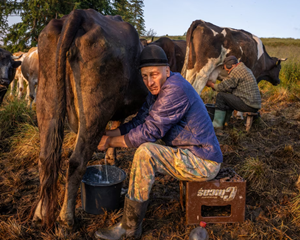The mayor plans to keep development small-scale and high value, preserving the charm of the area (boutique hotels, a museum, guided hikes, and bird-watching), along with expanding the market for local cheese, honey, and preserves from orchards.

"Whatever the reason, it's the problem bears we need to target. Simply reducing the overall population isn't going to help. It's up to us humans to avoid attracting bears to where we live."











